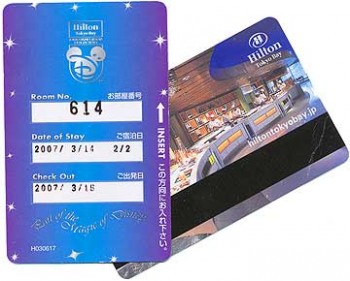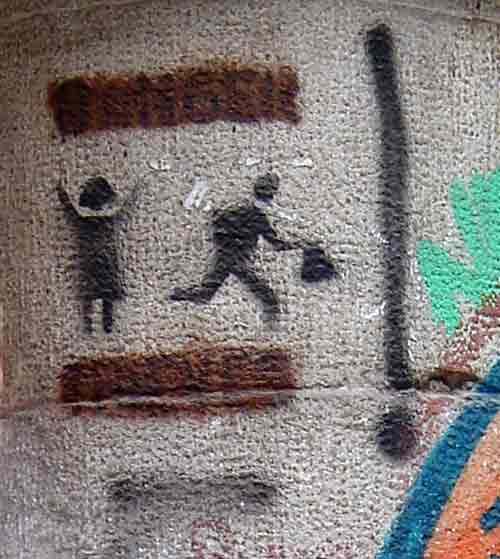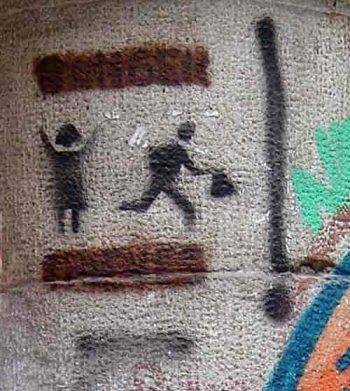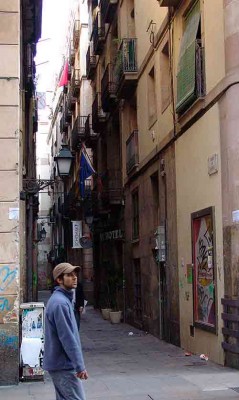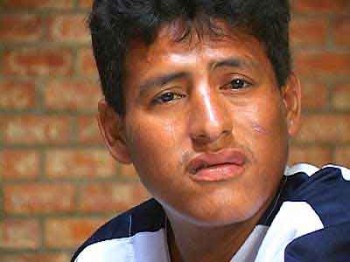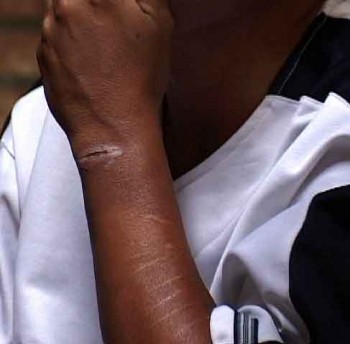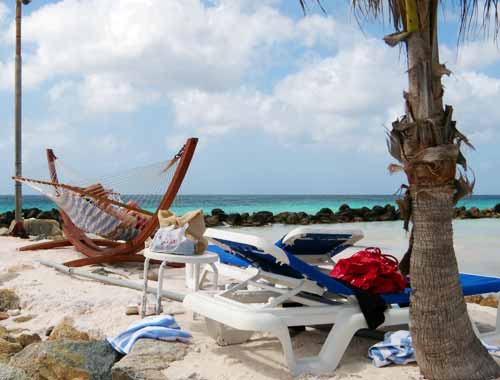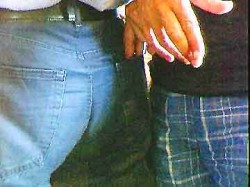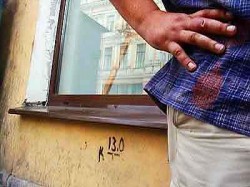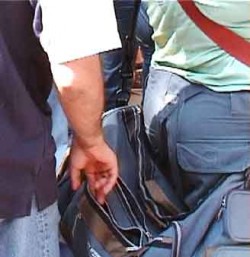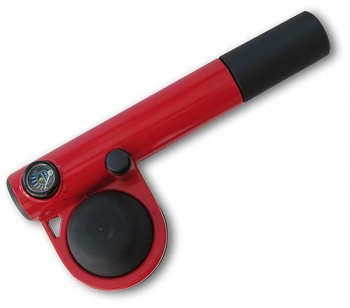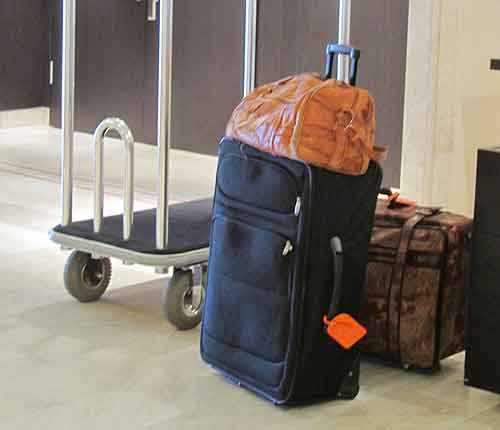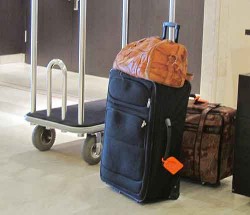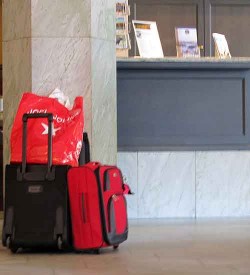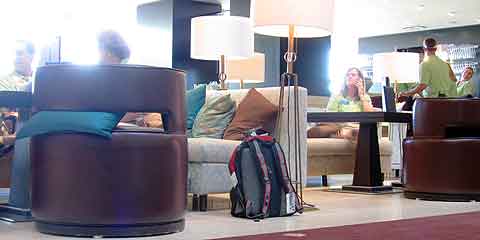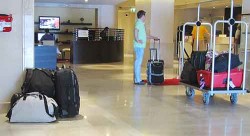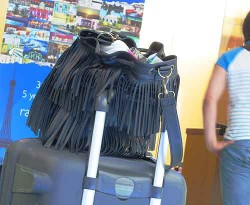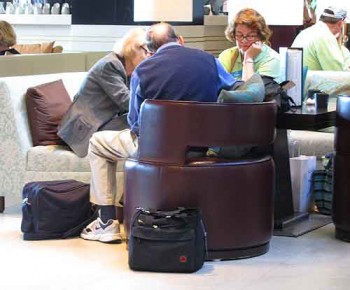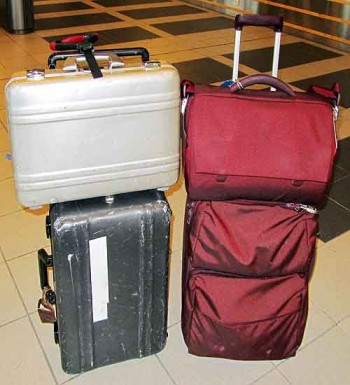
Road Warrior Packing Tips
Eighteen years of near constant travel gives one a certain authority on the subject. Bob Arno and I are on the road together about 200 days a year, making more than a hundred take-offs and landings per year. Although we travel side-by-side to the same destinations, we have very different ideas about how to pack and what works best on the road.
Let’s start with checked bags. What do you bring?
He: Zero Halliburton hard-shell aluminum cases. Usually a regular suitcase-shaped one for clothes, and an 18-inch cube-shaped one for equipment. They’re hard to break into and almost indestructible.
She: Same, but only one. It opens like a clamshell and both halves lay flat when open. I always slide it under the bed and use it like a drawer. I don’t unpack much.
How is your stuff organized within the suitcases?
He: Everything is in containers. Socks, shirts, shoes, shaving stuff, all of it. They all zip or close, and I’m rather fond of the containers as well as what they contain. Ties and belts are rolled. All shoes have shoe-trees. Suits lay flat and are interwoven to prevent creases. I bring a great steamer, but I usually just need a few blasts with it. I’m not a perfectionist wrinkle-wise.
She: My clothes are folded and stacked as they would be in a drawer. Even dresses. Clothes in one half of the bag, shoes and accessories on the other side. Shoes are all in bags. Belts are usually flat instead of rolled, because they take up no space that way. I’m fanatic about sealing liquids in plastic bags. I’ve had one leak too many. Other than shoe bags, I’m not big on containers.
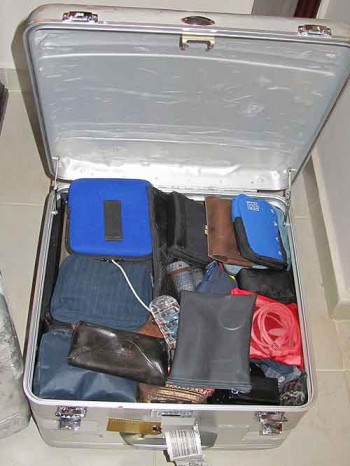
Cabin baggage. Do you use a roll-aboard?
He: Absolutely. A maximum regulation-sized Zero Halliburton, black aluminum. Its telescoping handle is actually too short for me—all roll-ons are too short for me!—so I have a snap-on handle extension that makes it really comfortable to drag. The bag locks, and it’s padded inside. I stuff it full of hard drives, video cameras, and other recording equipment. Because of the bag’s excellent security, I don’t have to worry too much when I’m forced to check it on smaller planes. However, because it’s so dense with electronics, I have to pull half the items out at every security check, lay them flat in a bin, and put them separately though the scanner.
She: Mine’s a red Mandarina Duck, also the largest regulation size. It has tons of zipped pockets, and anything I need is a just second away. The power cord for my computer, plug adapters, a book, iPod cord and earphones—they’re all in outside compartments. Inside I have a black suit and a dress, both on the same hanger, important shoes, a hard drive, and just a mass of necessities. I could probably live with just that bag. In fact I did once, out in Africa when my checked luggage didn’t show up. Ten days with just my carry-on!
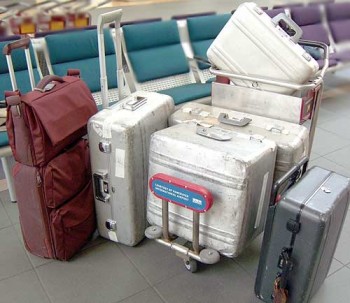
What about your second carry-on, your “small, personal item”?
He: Yep, another Halliburton. It’s a briefcase, which holds two Mac laptops, a few more hard drives and power cords, my wallet, pens, and reading. It balances on my roll-on, and I can snap my extension handle over it to fasten them together. Strong and safe!
She: A Mandarina Duck shoulder bag that goes with the roll-aboard. This bag is fantastic. It holds my 17″ MacBookPro in one padded compartment, and all my important items in another. Wallet, iPods, jewelry, foreign currency, airplane power adapter, reading, a shawl, and innumerable little essentials (like passports and dark chocolate). The bag attaches securely on top of the roll-on and the two stand as a single unit.
Have any unusual packing tips?
He: 1. Bags and pouches for everything, and the same ones all the time so you know where everything is.
2. In addition to an international plug adapter, I keep a short extension cord with multiple outlets in my roll-on. It allows me to share a power outlet, even if, like in an airport, they’re all being used. It’s useful every single day.
She: 1. I keep a small pouch in my shoulder bag, about the size of my hand. It’s my airplane bag, and goes on my lap on every flight. It contains noise-canceling earphones, a pen, lip balm, and a nail file. Things I know I’ll want on the flight.
2. On the road, the lowly shower cap has a hundred uses. As shoe bags, a rainy-day camera cover, to hold not-quite-dry socks, collected seashells, or an oozy bottle of lotion… even to cover the tv remote if you’re squeamish.
3. When packing a nice suit jacket, stand the collar up and open the lapels so they’re flat. That way you avoid hard, sharp creases where the lapels fold and your jacket will look more elegant.
4. I use shampoo for hand-washing clothes.
Criticisms on each other’s method?
He: Bambi isn’t in charge of all our video equipment and hard drives for video editing (which we do on the road), so she can use her space for useful things that benefit us both. Neither of her cabin bags is lockable, though, so she’s always reluctant to leave them in a hotel storage room. To me, her bags are messy inside. I don’t know how she finds anything, but she does.
She: All his pouches and little bags! I don’t know what’s in any of them. And with luggage weight restrictions, why haul the weight of containers? Bob’s two carry-ons take too much time to get into. I can grab a credit card, loyalty card, pen, tissue, or bag of peanuts in an instant. I take out my computer, check email, and put it away all in a minute or two, while standing up. I get through airport security and I’m on my way in under a minute. Bob’s set-up is slow. But I’m not above locking my stuff into his bags sometimes.
![]()
![]()



